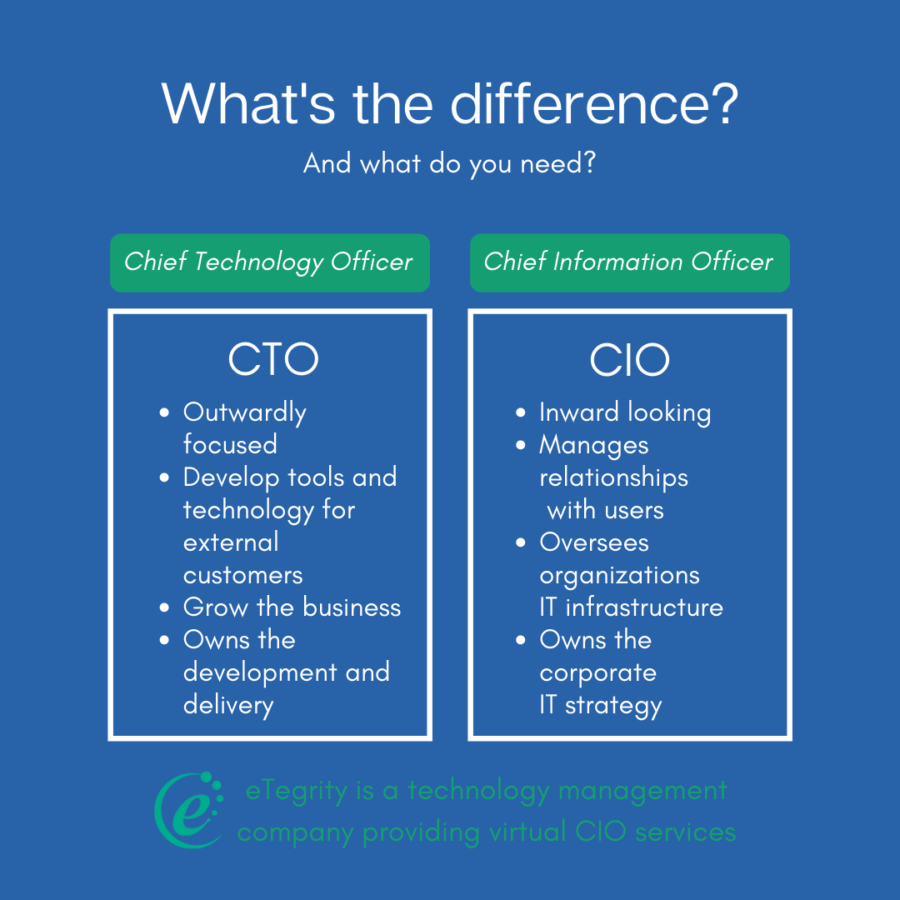For many people, technology and its terms cause much confusion. In fact, there are people that have known me for years who still do not grasp what I do. Recently, I came across an article, CIO vs. CTO, that resonates with me. The article spells out the subtle differences between a Chief Technology Officer and a Chief Information Officer. It states:
Let’s start with an overview. The CIO is typically inward-looking. They manage relationships with internal customers (users) and oversee the organization’s IT infrastructure. The CTO is more outwardly focused. They help to grow the business by developing the tools and technology that external customers will buy.
Based upon the differences in the article, I serve as a Chief Information Officer. However, I am an Outsourced CIO – for companies that do not have, nor need, a full-time, internal CIO.
What Does a CIO Do?
- As the Chief Information Officer, I oversee the entire company’s IT platform, infrastructure, and strategy. I ensure that IT processes are efficient and streamlined. In other words, I make sure the organization’s IT accomplishes business goals while maximizing productivity and profits.
- Also, I constantly monitor developing technology that will make the business run even better. To that end, I make sure the company is getting a return on its IT investment. Equally important, I make sure they are getting exactly what they are paying for including holding outside vendors and internal personnel accountable.
- Lastly, I make sure the entire IT environment is secure. This is more important than ever with so many employees working remotely.
Small Business
Most small businesses can’t justify the expense of a full-time CIO or CTO. So, we sometimes wear both hats for our smaller business clients. As the article describes, the CTO is an outward-focused function. The CTO is focused on the company’s customer experience. We get that as well. Our vast experience in technology, and as business owners allows us to help you manage this aspect of your business as well. At the end of the day, we will worry about your technology so you can worry about your business.
I hope this clarifies the role and need for a CIO. If you have any questions, let’s have a conversation.


